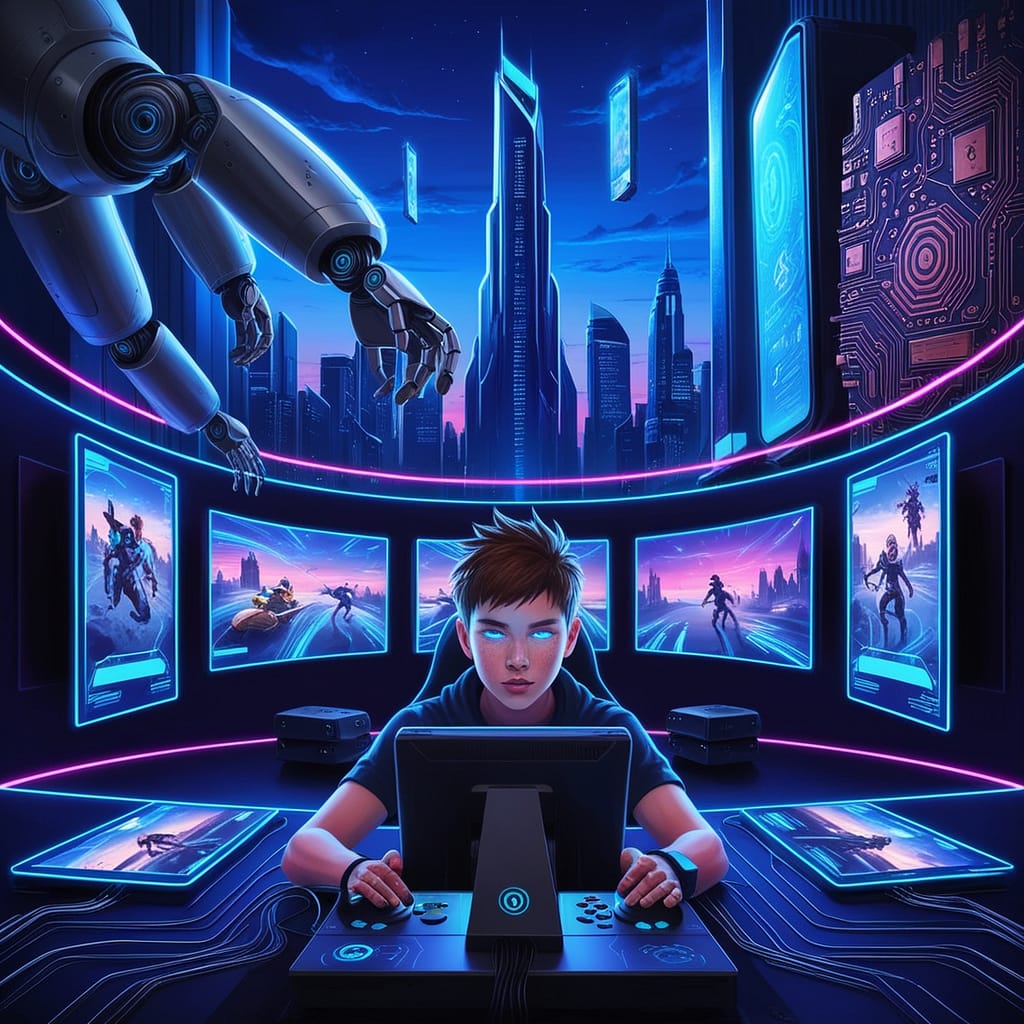Artificial intelligence (AI) is becoming an integral part of the gaming industry, reshaping how games are developed, played, and enjoyed. From enhancing gameplay experiences to creating more lifelike characters and environments, AI has a profound impact on various aspects of the gaming world. Here’s a look at how AI is transforming the gaming industry. 🌟
1. Dynamic Non-Player Characters (NPCs)
AI is revolutionizing the way NPCs behave and interact in games. Instead of following predetermined scripts, advanced AI techniques enable NPCs to make autonomous decisions, adapt to player behavior, and engage in more realistic interactions. This leads to immersive gaming experiences where each encounter feels unique, enhancing player engagement. 🕹️
2. Procedural Content Generation
Procedural content generation (PCG) uses AI algorithms to create game levels, environments, and resources dynamically. This approach allows developers to produce vast, diverse worlds with less manual effort. Games like No Man’s Sky utilize this technology to offer players an almost infinite universe to explore, ensuring that each player’s experience is distinct and unpredictable. 🌌
3. Enhanced Player Experiences with Personalization
AI algorithms can analyze player behavior and preferences to tailor gaming experiences. This personalization can include adaptive difficulty levels, personalized game recommendations, and customized in-game challenges. By aligning the game experience with individual players’ skill levels and interests, developers can increase player satisfaction and retention. 🎯
4. Realistic Graphics and Physics
AI is enhancing the visual fidelity of games through improved graphics rendering and realistic physics simulations. Techniques such as machine learning empower developers to create lifelike animations, realistic textures, and dynamic lighting effects, making virtual environments more immersive. These advancements dramatically enhance the visual experiences players enjoy. 🌈

5. Smarter Game Design and Development
AI tools assist game developers in various stages of game design, from concept development to testing. Machine learning algorithms can analyze player feedback and game performance, helping developers identify areas for improvement. Furthermore, AI can simplify tasks such as bug detection, balancing gameplay elements, and optimizing graphics performance, streamlining the development process. 🛠️
6. Advanced Game Testing
Game testing benefits significantly from AI, which can automate the process of finding bugs and ensuring quality assurance. AI algorithms can simulate player behavior to identify potential issues, thus reducing the time and cost associated with manual testing. This leads to higher-quality games and a more polished final product for players. 🧪
7. AI-Driven Storytelling
AI is also finding its way into narrative development, creating more dynamic and interactive stories. Procedurally generated narratives can adapt based on player choices and actions, leading to multiple story outcomes and replayability. This means players can experience unique story arcs in every playthrough, enhancing emotional engagement with the game’s narrative. 📖
8. AI in Online Gaming and Esports
In competitive gaming, AI is used to analyze player strategies and improve gameplay. AI systems can review game footage, suggest strategies, and even offer coaching to players looking to improve their skills. In esports, AI analytics can also provide insights into player performance and team dynamics, influencing game strategy and tactics. ⚔️
Conclusion
Artificial intelligence is fundamentally changing the landscape of the gaming industry, paving the way for more immersive, personalized, and dynamic experiences. From smarter NPCs and procedural content generation to enhanced realism and innovative game design, AI is shaping the future of gaming. As technology continues to evolve, the possibilities for AI in gaming are limitless, promising even more exciting developments for players and developers alike. 🚀🎉



